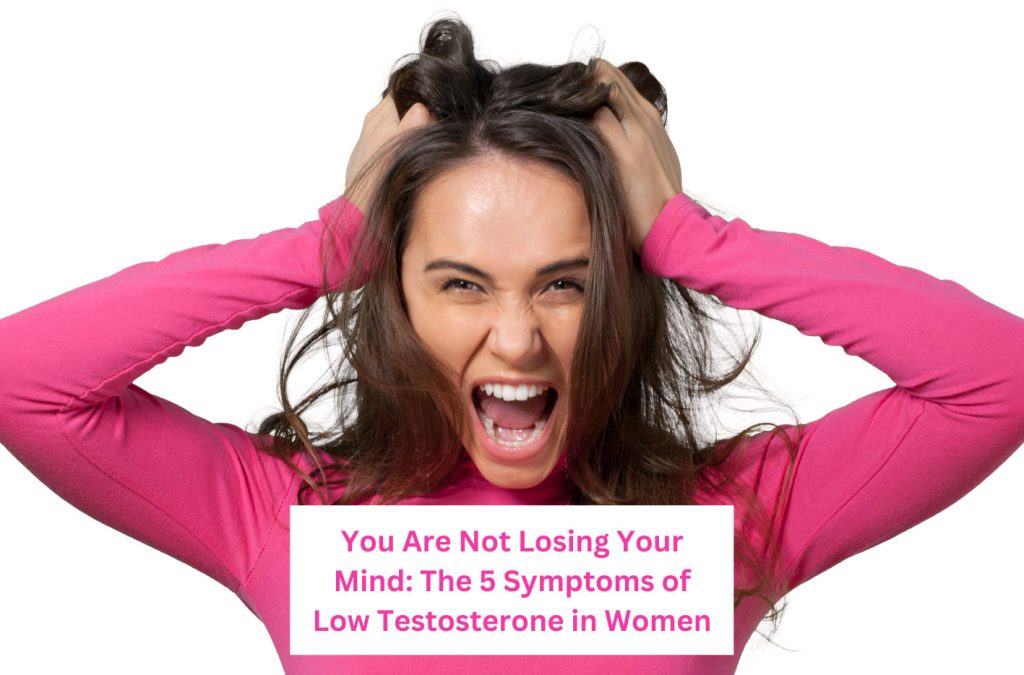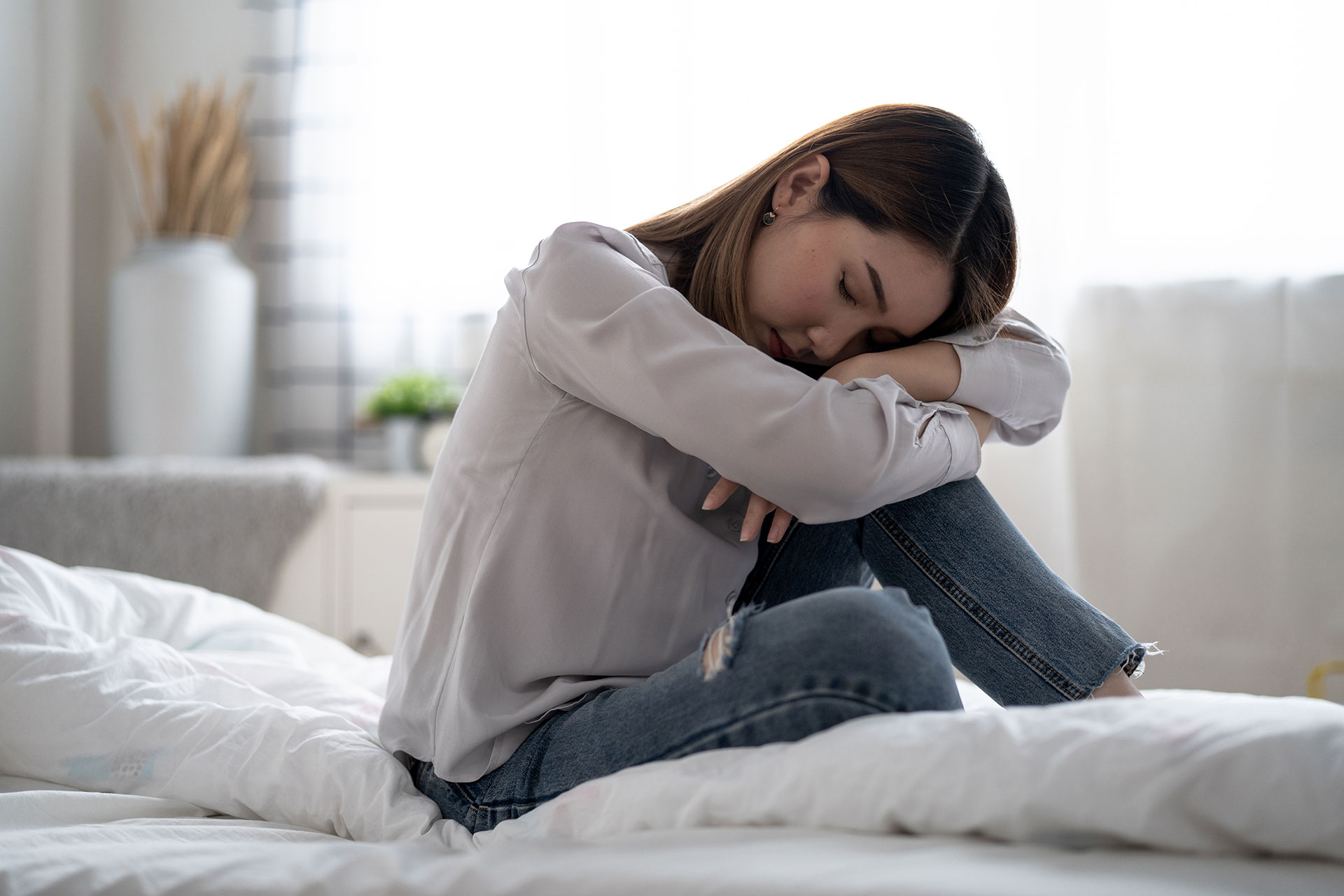While we often think of Testosterone as a “male” hormone, women have testosterone too. Along with Estrogen and Progesterone, this too declines during menopause. When it dips below optimal levels, there are consequences that can be displayed with a wide variety of symptoms that often get swept under the rug. Here are the 5 things you will want to watch out for during menopause.

Hair Loss
Hair loss is one of the more obvious symptoms of low testosterone. Unfortunately for women, this can be absolutely devastating, especially if you already have thin hair. Testosterone is one of the main hormones that support the production and maintenance of healthy hair.
Typically, hair loss from low testosterone will typically be noticed first on the head, since you wash your hair often and look in the mirror every day. Hair loss can also be noticed in the other areas of the body you would typically shave, like your legs, armpits and bikini area. If you are noticing that your body hair is patchy, or you have to shave your legs and armpits less than you normally would, you could have low testosterone.
It’s important to know that hair loss can also be due to poor nutrition or absorption in the gut, chronic stress or trauma, or even a thyroid dysfunction. If you are not sure it is always a good idea to see a holistic or functional medicine practitioner to address your overall health and get to the root cause.
Fatigue
If you’re constantly tired, even after getting a full night’s sleep, you could be experiencing one of the many symptoms of low testosterone in women. You don’t have a caffeine deficiency, low testosterone levels may contribute to you feeling exhausted and drained.
Waking up in the middle of the night. Disrupted sleep and waking up at 3 am is another common symptom for women with low testosterone and is also common with cortisol, estrogen, or progesterone imbalances. A restful night’s sleep is dependent on balanced hormones, not just one of them, all of them.
Stubborn Weight Gain & Difficulty Losing Weight
Many women with low testosterone struggle with weight gain. For women, weight gain seems like a normal part of aging, and we often assume it’s just part of getting older. The reality is, just because something is common, does not mean that it is normal. If suddenly out of left field, you find your weight going up and cannot lose it regardless of diet or exercise, or you notice you have less muscle tone and more cellulite, you may be showing signs of low testosterone.
Depression, Anxiety, & Mood Swings
Testosterone plays a crucial role in mood regulation. If you are experiencing sudden bouts of mood swings, feeling angry or anxious for no reason, or are just feeling down or depressed, then you may be suffering from low testosterone or other hormonal imbalances.
Testosterone plays a vital role in the regulation of the brain’s chemistry, and low testosterone can trigger mood related symptoms. Low levels of testosterone can affect not only your moods, but your confidence as well. You may lose interest in the things you once loved doing.
If you are considering taking medications for depression or anxiety, then you may want to do this first. Get a baseline of your hormone health to see if imbalances in testosterone, estrogen and progesterone are the root cause of your less than happy moods.
Low Sex Drive
Believe it or not, just like in men, testosterone affects sexual arousal in women. Low testosterone can be displayed in a few different ways. First, there is a general disinterest in your desire for intimacy. The lack of interest in addition to feeling dissatisfied with our own physical appearance from weight gain can really put the
pause button on bedroom activities. And the most common symptom of low testosterone is vaginal dryness, not only is this uncomfortable to live with, it also causes pain during intercourse.
These are the most common symptoms to watch out for. Remember, every person is different in the way they display and respond to the change. Often times, these symptoms can be a result of more than one dysfunction in your body. The bottom line is, if you are dealing with one or more of the issues mentioned above, there is help available.
The next best step is to consult with your doctor or book a consultation to see if your hormones are compromising your well-being. (This includes a 30-minute review of your health history, recent labs and recommendations from a natural healthcare practitioner at Her Functional Wellness.)

